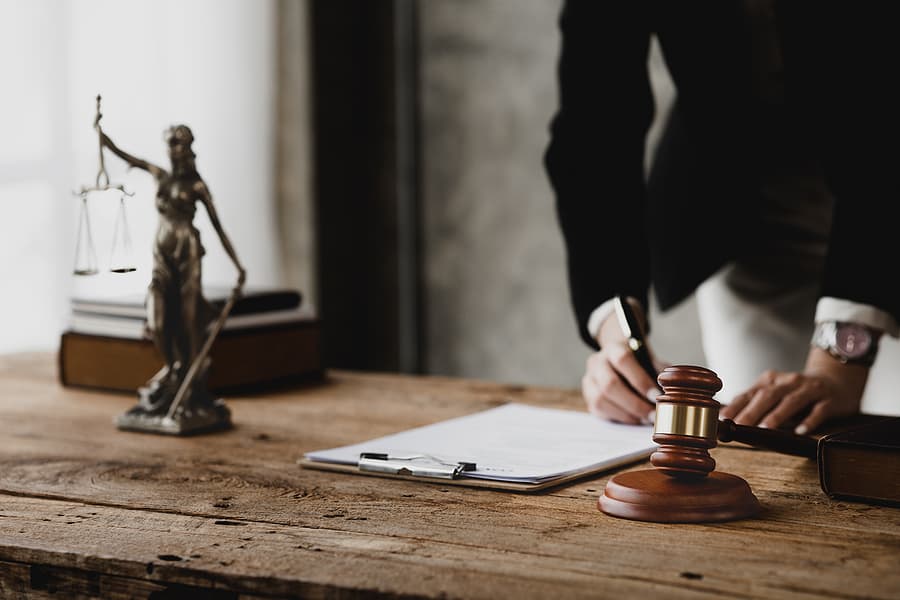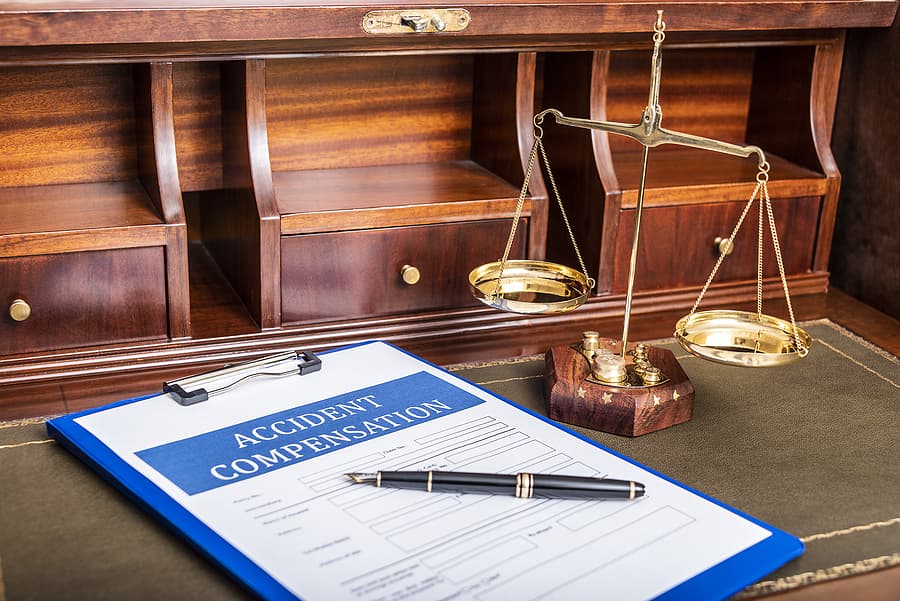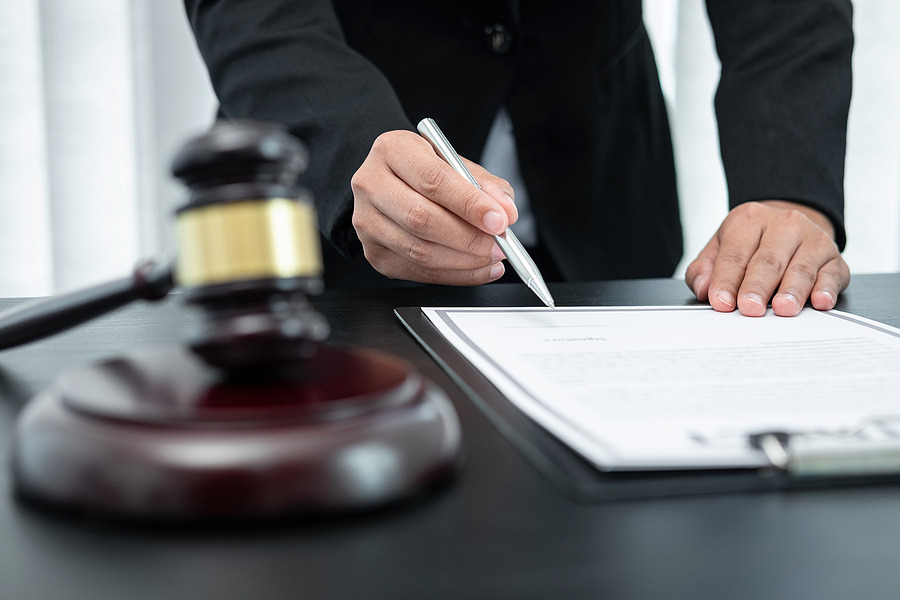We do not plan for our lives to be interrupted or changed by an injury; it is common to think that it will never happen to us. If you do suffer an unexpected injury, it can be hard to know what you should do.
If someone else is at fault for your injury because, for example, they created a dangerous situation or were acting carelessly or recklessly, you may have a personal injury claim that could lead to a lawsuit. That person or business may be responsible for paying you money because your injury was their fault.
Knowing how a personal injury lawsuit works can help you decide what to do after an injury and what to anticipate if you chose to pursue your legal claim.
What Is the Purpose of a Personal Injury Lawsuit?
Personal injury lawsuits seek money compensation for people who have been injured or suffered other losses due to another party’s negligent actions or inaction.
Most personal injury cases focus on negligence: whether the party who caused the injury was acting like a reasonably prudent person would. Other cases are based on intentional wrongdoing. For either type of claim, the defendant is a person or organization who caused or contributed to your injuries.
The law allows those who have been injured due to another’s negligence or wrongdoing to get money compensation for the injuries and losses they sustain.
Who Can Sue for a Personal Injury?
Anyone that suffers an injury due to another person’s negligence may have the grounds to file a personal injury lawsuit against the parties who were responsible. To make a successful claim and hold the defendant liable for your injuries, you prove each of the statutory elements of negligence.
At its most basic, negligence law requires that a plaintiff must establish:
- The at-fault party had a duty of care they owed to you at the time of the injury;
- The at-fault party, whether through their overt act or lack of action, breached the duty of care;
- You suffered an injury or verifiable harm caused by the at-fault party’s breach of their duty of care; and
- You have incurred damages because of your injury, such as medical expenses, lost wages, and more.
While anyone can file a lawsuit, these elements can be difficult to meet. Rushing into litigation may not be the best option for you, depending on the facts of your case. At Gruel Mills, we can review your case in a free consultation and determine if it would be worthwhile for you to pursue a legal claim.
Most Common Types of Personal Injury Cases
Personal injury law is a vast area of law that can cover a wide range of situations. All personal injury cases have different facts, injuries, and circumstances giving rise to the injuries, which can ultimately affect a victim’s recovery.
Some of the most common personal injury cases include:
- Motor vehicle accidents
- Bicycling or pedestrian accidents
- Slip and fall cases
- Defective products
- Medical malpractice
- Worker’s injuries
Common Injuries

A personal injury incident can cause any type of injury, from a minor strain or sprain to a life-changing head or spinal cord injury. Any injury that requires medical attention can result in high costs or lost wages if you are unable to work while you recover. Serious injuries can create challenges and stress as you try to support yourself and your family while focusing on your healing.
Common injuries in personal injury cases include:
- Traumatic brain injuries or other head injuries
- Neck, back, and spine injuries, such as torn or ruptured discs or fractures
- Spinal cord injury
- Burns
- Amputations
- Development of illness, such as from exposure to a dangerous substance
- Broken bones
- Torn muscles, tendons, or ligaments
- Lacerations
- Internal injuries
How Do You Know Whether a Lawsuit Is Necessary in Your Case?
Whether a lawsuit is necessary or worth pursuing is a complex question. The answer is often not clear immediately following a personal injury. Consulting with an experienced personal injury attorney at Gruel Mills is the first step in getting the answers on how best to proceed with your case and your likelihood of recovering compensation for your losses.
Many personal injury cases never go to trial or even require a lawsuit to be filed. A personal injury lawyer can often help a victim negotiate a successful settlement that reasonably and fairly covers the damages long before a trial is scheduled.
However, there are some situations where settling the case is not possible, or accepting the settlement can cause you to miss out on a large amount of compensation you could otherwise receive. Your lawyer is your best resource for understanding the intricacies of your case and when to file a lawsuit to get the compensation you need.
Liability for a Personal Injury Accident
Who you sue for a personal injury is an important decision in your case. Your attorney will work with you to discover any party that may be liable for your damages.
The individual or entity directly responsible for your injury, or others you may not know about, can bear liability for your damages. Investigating who caused your losses can help you decide who to seek compensation from, whether through a lawsuit or an insurance claim.
Why Would You Sue an Insurance Company for a Personal Injury?
Lawsuits for personal injury generally proceed against the party responsible for the events leading to your injuries. However, if that defendant had liability insurance, their insurer will be very involved in the lawsuit and will likely be running the show. The insurer generally selects the lawyer who will represent the at-fault defendant and must approve any settlement that will be paid out of its policy.
Sometimes, it is necessary to file a lawsuit against the insurance company itself if there is a question about whether the insurance would cover your damages. You may need to ask the court to rule that the insurance company is on the hook for your injury.
What Is the Timeline of a Personal Injury Lawsuit?
A personal injury lawsuit involves a number of steps, including discovery of evidence, the filing of motions, attempts to settle the case, and trial. Every case is different, and there is no way to know how long it will take your case to resolve. However, your attorney can help you understand what to expect and a general time frame for your case.
Hiring of a Personal Injury Attorney
Hiring an attorney to represent you in your personal injury case is the first step in the fight for compensation in your case. The first step is usually a free consultation, in which the lawyer will listen to the details of your case and ask what you hope to get out of a lawsuit. The lawyer may also want to do some preliminary investigating and review any documents you have, such as medical records. The lawyer will then decide whether they can accept your case and represent you.
Your lawyer will also explain the costs of the lawsuit and how they will get paid. You will be asked to sign an agreement setting forth this arrangement. Most personal injury lawyers do not require you to pay anything up front, nor do they charge by the hour. Rather, they will accept a set portion of whatever you recover as their payment. This is called a contingent fee.
Building Your Case
Once you are officially a client, your lawyer will investigate the case and gather evidence to support your claim—for example, what caused the events leading to your injuries, who is responsible, and the estimated damages you have and may incur. Attorneys will also take testimony from experts and other witnesses with insights into your case, injuries, and recovery.
Filing a Lawsuit
At some point, your attorney will file a lawsuit in court. The lawsuit can be filed at any time following a personal injury incident, so long as it is within the statute of limitations in your state. A statute of limitations is the deadline for filing your type of case.
In Michigan, the statute of limitations for most personal injury cases is three years. However, there are certain exceptions that can extend this time, as well as requirements that have to be met long before this time in some cases. Your lawyer will keep track of these deadlines and make sure that your rights are protected.
Discovery and Mediation
As part of a personal injury lawsuit, your attorney will engage in the discovery process with the other party or parties in the case. Discovery generally involves written questions, the exchange of relevant documents, and taking depositions of people who have relevant information. The defendant will likely take your deposition. This is not in court, but involves the attorneys asking you questions while you are under oath and a court report records your answers.
During the discovery process, you can find out what evidence the other parties may rely on and their views of the case. Your lawyer may have to file a motion asking the court to force the other side to disclose evidence if they do not cooperate.
Negotiating on Your Behalf
Negotiations are a crucial part of every personal injury case. If negotiations with an insurance company or party at fault succeed, you may get compensation for your losses while avoiding the necessity of going to trial. You may participate in a process called facilitation or mediation, where a neutral person tries to help the parties reach a settlement.
When you receive a settlement offer, your attorney will help you understand if it is a fair settlement that will cover all of your damages. However, the decision to accept or reject a settlement offer is always up to you.
When negotiations are not fruitful or reach a standstill, you have to start thinking about trial. Trial is always riskier than a settlement, because you could end up recovering nothing, or you could get an award that is much larger than the offered settlement. Your lawyer can provide an in-depth analysis of the strength of your case and the likelihood of a favorable result at trial. This can help you decide whether to accept a settlement offer.
Motion Practice
At certain points in the case, either party may file a motion asking the court to decide the case “as a matter of law.” These motions argue that there is no need to present the case to a jury at trial because one side must win the case under the existing law, based on key facts that are not disputed by the parties. These motions can result in your case being dismissed or a ruling that you are entitled to recovery. Your lawyer will file and argue these motions on your behalf.
Personal Injury Trial
If negotiations and mediations are unsuccessful, your case may go to trial. During a personal injury trial, each side will present evidence, arguments, and witnesses to support their position. In most cases, a jury will decide what happened and whether you are entitled to compensation. If you win, they will award you an amount of money that must be paid by the defendant. Alternatively, your case could be presented only to the judge, who will make those decisions.
Appeals
If either side is unhappy with the outcome of the trial or an earlier motion, they can file an appeal with the Court of Appeals. The appeal must identify something that the trial court did wrong and that the law requires a different outcome. It can take many months to get a decision from the Court of Appeals if an appeal is filed.
What Steps Can You Take to Prepare for a Potential Personal Injury Lawsuit?
Your attorney will handle most of what needs to be done for your case. However, you can help strengthen your case by taking the following steps.
Gather Your Evidence
When you are injured – if you can without causing yourself further harm – take photos and videos of the scene and get the names and contact information of anyone who witnessed the incident. If you are with a friend or family member, ask them to collect this information. If warranted, call the police, who will document the events leading to your injury.
As you get medical treatment, keep all of your medical records and take pictures of your injuries. Write down all of the ways your injuries are impacting your life. If there is news coverage or a post on social media about the incident that caused your injuries, save a copy.
In your first meetings with your attorney, they will want to review any evidence you have. Your lawyer will work to collect additional evidence that was not available to you, but it is a great benefit to your case if you provide all of the evidence in your possession to your attorney.
Keep Thorough and Accurate Records
Another practical step to help your injury case is to gather your thoughts and experiences from the day of the incident and your recovery. Include your recollections of what happened and how you feel as your injuries heal and you receive treatment. Also include any pertinent statements or conversations you may have had with other parties to the case that could be relevant in proving fault or the extent of your injuries.
Call An Attorney as Soon as Possible After a Personal Injury
To work through the personal injury lawsuit process, you should have an attorney representing you as soon as possible after your injury. Contact the experienced and compassionate personal injury attorneys at Gruel Mills today for a free consultation on your case. They can help you understand what compensation you may be entitled to from the parties responsible for your injuries.



